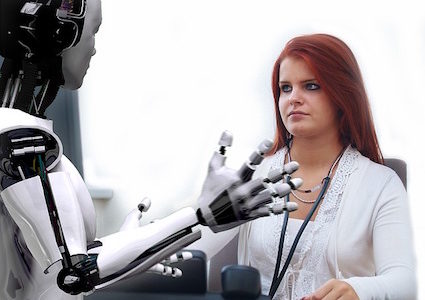Automation makes things easy, affordable, and convenient. Anyone who works with an Indramat systems knows this. Machines keep people away from hazardous environments and situations: moving parts, extreme heat or cold, high pressures, unstable or unpredictable environments, and exposure to toxic chemicals, poor air quality, or illnesses. Machines do heavy lifting and repetitive motions better than any human can, and they don’t have to worry about pulling muscles or developing arthritis. They don’t make mistakes, they don’t need breaks, and they are always on task. Automation is helpful and it can do a lot of good.
With all of the advantages and benefits of automation it seems logical to automate as much as we can, especially when that means people can focus on more worthwhile types of work. But should we actually automate everything that can be automated?
What will workers do if we automate low skill jobs?
One of the biggest concerns people have about automation is how it will affect employment and the economy. The number of jobs available to the workforce decreases as we automate more types of work. History shows us that human workers continue finding new ways to be useful.
We automate the least desirable types of work—dangerous, difficult, and mundane tasks—and this allows us to pursue more meaningful occupations and work that requires human skills: creativity, compassion, empathy, versatility, and adaptability. However, there are millions of people relying on those jobs.
What if society gets to the point where we can automate all low skill jobs? At the moment we don’t have the skilled work force we would need to prevent mass unemployment. The skills gap means that there would be unfillable jobs and unhirable workers.
How do we, as a society, respond to the effects of automation?
One solution is to retrain current workers and educate current students to fill these positions. These sound like good ideas. However, it’s unreasonable to expect each and every factory and fast-food worker to make the transition to computer programmer and robotics technician. Teaching students the skills to fill these higher skill jobs is easier said than done.
Andrew Yang suggests a universal basic income to help with the effects of automation, and Bill Gates suggest taxing robots. Really, we don’t know if automation will lead to unemployment. We do know that your business will continue to rely on industrial machinery now and in the future.
Call 479-422-0390 for service, support, and repair for Indramat motion control systems.
